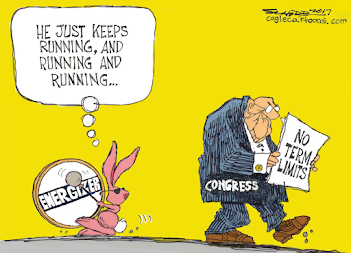"Sorry, you're not welcome here, the culture of exclusivity that clouds democratic politics."
It's no secret that the United States' history is a mosaic of centuries of systematic, cultural, and societal oppression that has hamstrung generations of non-white people. While today's America is marginally better than in the past, we still struggle to face the ugly reality that we are not the classes, race-less, genderless utopia that we think we are, especially in left-leaning political spaces.
It's not hard to see while we are making extraordinary progress, we are still nowhere near where we should be, whether that's due to infighting, failing to take the insurgence of fascism seriously, or ignorantly failing to be a comrade over an ally, a comrade in my opinion, never deserts a comrade. A partner is only helpful when it's beneficial to them or when they think it's in their best interest; in addition, allies can betray one another for their selfish purposes, whereas comrades are eternally loyal to each other and the causes they support.
From personal experience, often, it's self-perceived allies that deal more damage than our supposed enemies. As a bisexual, autistic, black man, my intersecting identities expose me to various lenses of experience. For instance, my race sometimes can put me at a severe disadvantage as opposed to my white contemporaries, as I have to work much harder to achieve the same level of success and or achievement. Often it means when you flag serious problems such as a culture of sexual harassment, discrimination, etc., you won't be taken seriously, especially when the issue concerns racial discrimination. White folks tend to view the world with rose-colored glasses, making them oblivious to the world they manufactured, in which everyone who isn't white, non-disabled, Christian, and wealthy looks out of place. I'm glad to have never faced inherent discrimination. However, covert discrimination is the norm since it's much harder to detect and gives the perpetrators cover and credibility to continue their veiled attacks.
Besides race-based discrimination, discrimination based on disability, visible or invisible, bothers me the most. I'm an autistic person, meaning I have ASD, Autism Spectrum Disorder. According to the DSM-5, a medical reference book for diagnosing mental health disorders, folks with ASD "must have persistent deficits in each of three areas of social communication and interaction." As you can imagine, having autism and working in a political space is like wearing clown shoes to run a marathon. My autism presents some issues to interacting with others, but I work very hard to overcome them. However, there are times when my ASD has posed a problem. Recently, a colleague alleged that my behavior towards them made them uncomfortable. In retrospect, I see how my comments hurt them. Even though I intended to mingle with them, they felt hurt and betrayed, and I honestly couldn't blame them. After that incident, there was nothing but tense and awkward silence between us, which made political work difficult because it's hard working with someone in the same political organization who ignores you whenever you're around, making you feel uncomfortable, unwanted, and inconvenient. The most painful part of that situation wasn't the initial problem; it was the aftermath because it made political work inhospitable and borderline challenging to enjoy when you think one of your colleagues hates you. No matter where you turn, there they are.
Now you must be telling yourself, "holy fuck, that was depressing to read," and yes! It was just as depressing to live through them and retell those stories, h o w e v e r; there is a silver lining to be found. We can change things! We actually can. Learning how to confront our biases and make ourselves and the institutions we work in more accessible and inclusive. Take it from me; many more folks like me have their own stories of discrimination and their triumphs. I became the first black president of this club, but that wasn't without the challenging moments and tribulations that come with the job. Suppose there's one thing to take away from what I've said, the power to change lies within all of us. We have to kickstart the change.
Writer of the week: Samuel Ajah (He/Him)
Samuel "Sam" Ajah is a 3rd year Geography Major from Long Island, New York. Previously President of Penn States College democrats Sam is now taking time to help people in his community and family. Sam is the oldest of three siblings and a second generation Nigerian American. Besides politics, Sam enjoys knitting and crocheting and is a strong advocate for queer, neurodivergent, and minority inclusion in all aspects of life. Growing up Sam had trouble fitting into any sort of mold society attempted to squeeze him in, and as a result he has made it his mission to be inclusive and promote diversity into the Penn State College Democrats. Sam was the clubs first Black president and his legacy remains present within the club today.
Instagram: saaamajah410
Twitter: saaamajah_01
Photo Credit: Brown Center Chalkboard





Comments
Post a Comment